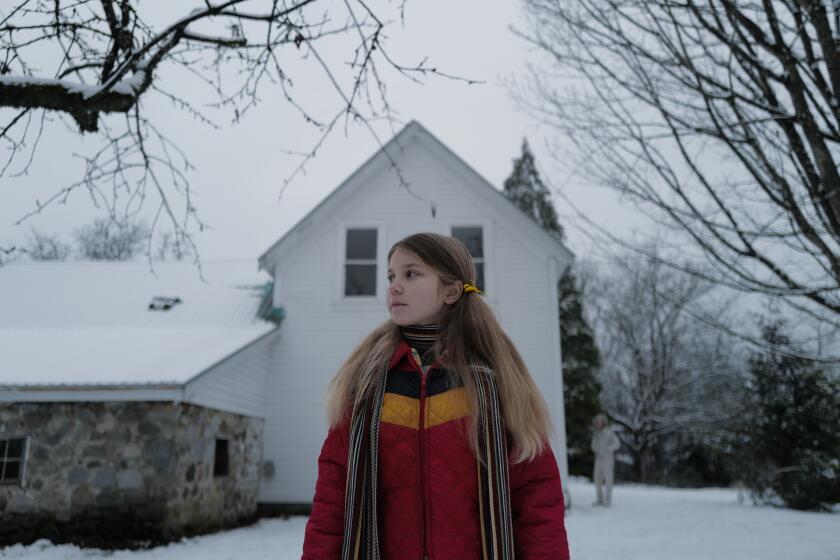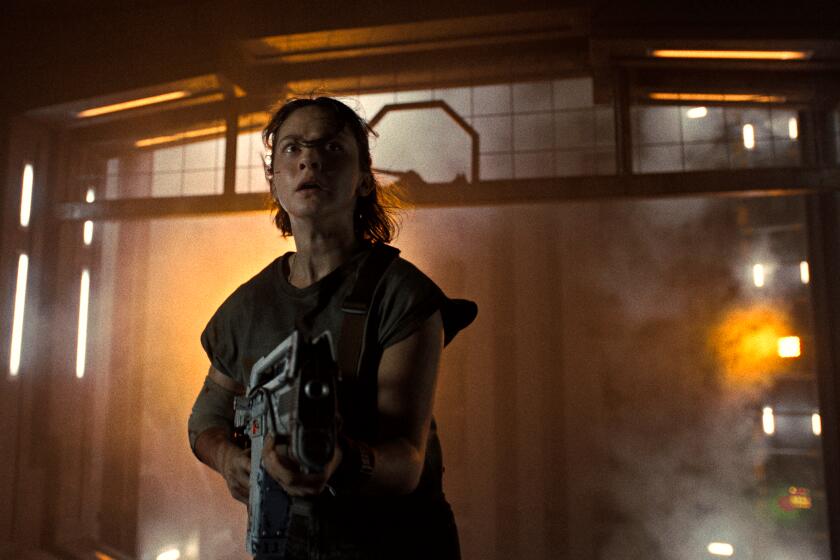A life revealed in ‘After My Death’
At its heart, and there is a great heart to be discovered here, Morgan Dews’ documentary “Must Read After My Death” is a searing and intimate account of an unconventional woman struggling not to lose her identity or her sanity in the rigid 1950s suburban world of stay-at-home moms, well-behaved children and sparkling-clean houses.
It is a family seen through the prism of Allis, Dews’ grandmother, not the one he knew growing up but the one he discovered in the more than 200 hours of home movies, 50 hours of tapes and 300 pages of transcripts in a file labeled “Must Read After My Death.”
This is Dews’ first feature-length film, and he has done exceedingly well distilling all those pages and hours into a story so compelling and so taut in its construction that it is virtually impossible to look away; the images on-screen sit in almost complete opposition to the story we hear.
Though there are other voices, Allis’ is by far the most powerful. “I love my children and I want to be a good mother, but I’m not one to sit at home and paint and sew.” “I’m not a housewife, I’ve never been a housewife.” “I told Charley I wanted to have his children whether he married me or not.” “I’ve got to find something I can be successful at.” “Do I have the right to take time from the family to do anything?”
Her words begin to feel like dispatches from the feminist front lines and get darker as the years go by and the family deconstructs: Anne, the oldest, marrying at 17 in part to escape the family’s escalating fights; Bruce sent to a psychiatric institute for a time; Chuck, an undiagnosed dyslexic, struggling to learn; Douglas, the youngest, unhappy and failing; Charley’s anger rising; Allis’ anxiety escalating -- most of them spending hours in therapy each week. And through it all, there is Allis’ questioning -- of herself, their lives, their choices and all that has gone wrong.
The hours of self-examination as she searches for some truth in her life are infused with issues that sound familiar today: finding one’s place in the world at large, grappling with the expectations of society. She is torn between a desire for independence and her love for her children, arguing passionately that nonconformity is not a destructive force.
But the timing was just not right for Allis, and so, instead of a network of like-minded friends, she invests her trust in analysis at a time when men and their limited vision of a woman’s place dominated the field. Coming out of one session, Allis is distraught as she reacts to being told that she is the cause of the family’s misery. It is hard not to see “Must Read After My Death” as an indictment of psychiatry, though Dews has said it is not.
That such a trove of material exists at all is due to the four months each year that Allis’ husband, Charley, spent working in Australia. The couple began sending Dictaphone recordings back and forth to keep the family, which by then included four children, and Charley connected.
Over time, the recorder would become one of Allis’ most significant relationships as she used it first to talk to Charley, then to the various mental health professionals the family was seeing, and ultimately to herself as she sifted through her changing emotions and issues.
We learn that she and Charley had an open marriage, Charley sending along updates on the women in his life and his hopes that she is “having frolic and fun” too. She talks of Charley’s insecurity over her education -- she speaks four languages -- and her prior marriage. Between the lines, hints of Charley’s alcoholic rages begin to filter in, along with his other obsessions.
The unrelenting stream of words -- introspective, ironic, sad, confused, angry, tormented -- are all the more disturbing juxtaposed against the near-idyllic vision of the family’s life in the home movies: Charley and the kids building a snowman, splashing in the garden hose on a summer day, the kids giggling and tumbling over their father. Shiny, happy people everywhere.
With Allis the primary narrator for “Must Read After My Death,” Dews leaves it to the rest of us to decide whether the bruises and battles of her life were self-inflicted and what kind of tyrant, if any, Charley was -- though the scale is tipped in her favor. Near the end of the film, there is haunting footage of Allis, looking to be in her late 50s (we’re never told exactly). She’s barefoot, wearing a simple shirtwaist dress -- it looks to be warm outside. She is playing to the camera. Spreading her arms like wings, she begins to slowly move, like a giant bird about to take off. She is smiling. She looks free.
--
--
‘Must Read After My Death’
MPAA rating: Unrated
Running time: 1 hour, 16 minutes
Playing: At Laemmle’s Sunset 5, 8000 W. Sunset Blvd., West Hollywood, (323) 848-3500
More to Read
Only good movies
Get the Indie Focus newsletter, Mark Olsen's weekly guide to the world of cinema.
You may occasionally receive promotional content from the Los Angeles Times.











